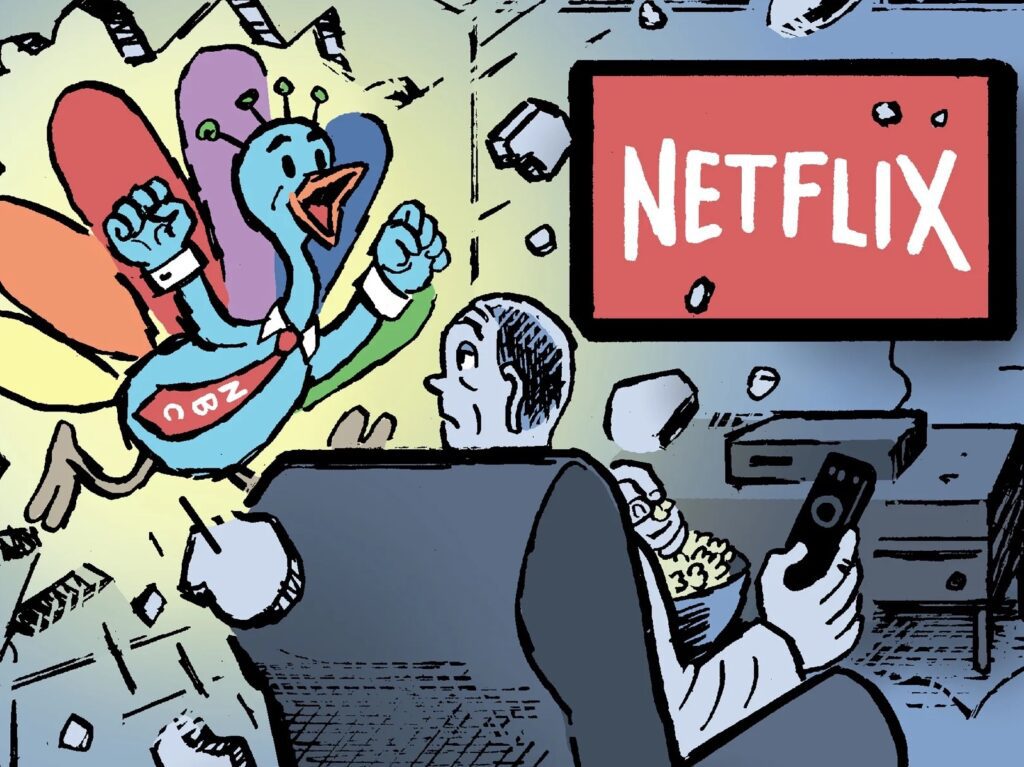The Savvy Shoppers
Who controls the retail media (RMN) budget?
It’s a complicated question, as Digiday reports. There are massive budgets locked up in retail trade marketing from print coupons to in-store displays that are part of shopper marketing budgets. Those tactics are coming online. And brand marketing channels are now getting closer and closer to the retail point of sale via clicks, QR codes and platform attribution.
If Kroger’s shopper marketing business serves streaming TV ads via an integration with Roku, that’s brand marketing terrain. Meanwhile, the brand team runs social media campaigns that ladder directly back to online shopping carts, which falls under the trade marketing purview.
But big brands can’t simply merge brand marketing and shopper marketing programs. For one thing, RMN budgets are often contractual – brands commit to respend a percent of sales as shopper marketing with any given retailer.
Shopper marketing is also a totally different mindset. Speak to enough grocery or household product brand marketers, for instance, and you’ll see that “the customer” is different: Brand marketers view the individual shopper as the customer, but shopper marketers refer to retail sales execs as customers.
Forcing a marketer mindset change is tougher than consolidating campaigns to The Trade Desk or putting a data-driven type in charge.
Let’s Be Upfront
It was only three years ago that YouTube first joined the TV advertising circus known as the upfronts. This year, it’s the closing event.
One new challenger event trying to draft on the TV upfronts is the Spotter Showcase, backed by Spotter, a company with software and services for online content creators. (Amazon is also an investor.) The event features MrBeast, Dude Perfect, Ryan Trahan, Kinigra Deon, Rebecca Zamolo, Jordan Matter and the duo from the show Colin & Samir.
“For decades, advertisers were about owning hit shows, moments, and attention across broadcast and cable,” says Spotter President Nic Paul in the release. “Today, that landscape has fundamentally shifted. To capture cultural moments and audience engagement, brands must align with creators.”
It is an up-for-debate question, though, whether marketers want to own the audience engagement of television, meaning live audiences and Hollywood production, or time spent viewing the big screen on the wall, which increasingly goes to YouTube and creator content.
Where You At?
On Monday, the California Attorney General’s Office announced plans to investigate the location data practices of various tech platforms, including ad networks, mobile app providers and data brokers.
Investigative sweeps like this are a pretty common practice in the California court system, according to a blog post from Frankfurt Kurnit Klein & Selz.
This time around, however, AG Rob Bonta specifically cited “the federal assaults on immigrant communities, as well as gender-affirming healthcare and abortion” as a reason that businesses need to protect consumer location data.
Ironically, current FTC Chair Andrew Ferguson seems like he’d actually be in favor of this move.
In December, before he moved from commissioner to chair, Ferguson voted in favor of enforcement actions against location data brokers, including Mobilewalla, X-Mode and Gravy Analytics.
In his statement at the time, Ferguson wrote that such data is “intrusive and revealing of people’s most private affairs” and that “the sale of such revealing information that can be linked directly to an individual consumer poses an obvious risk of substantial injury to that consumer.”
Of course, that probably doesn’t count the years’ worth of cellphone data that the Department of Homeland Security purchased from brokers for immigration enforcement. So maybe there’s something to California’s concerns.
But Wait! There’s More
Google’s new carbon footprint tool (surprise!) claims the Google Ads platform has lower emission levels than expected. [Campaign]
Creators and influencers are conflicted about Meta’s plan to spin off Instagram Reels into a standalone video app. [Digiday]
Apple is preparing a dramatic software overhaul that would change the look and function of its iPhone, iPad and Mac operating systems. [Bloomberg]
Advertisers are skeptical of changes being made to Google Tag Manager. [Search Engine Roundtable]
You’re Hired
Stephanie Fried joins McAfee as CMO from Fandom. [release]











